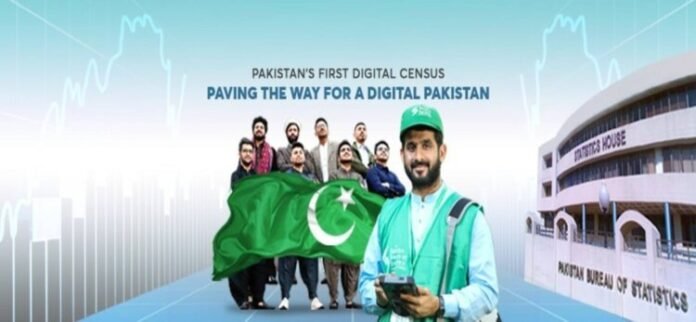ISLAMABAD: Pakistan on Thursday launched its first-ever Digital Economic Census, a landmark initiative aimed at reshaping the country’s economic planning through reliable, scientific data.
Speaking at the launch ceremony of the “Economic Census – Main Findings Report,” Minister for Planning and Development Ahsan Iqbal said the new dataset will help strengthen good governance, tackle unemployment, and ensure better use of national resources.
“This is a historic milestone for Pakistan. For the first time, our economic planning will be backed by scientific evidence and real-time data, paving the way for sustainable economic growth,” the minister said at the Planning Ministry auditorium.
According to the census findings, the Pakistan Bureau of Statistics (PBS) geo-tagged 40 million buildings, identifying 7.2 million economic entities. Each entity has been assigned an industrial code, allowing policymakers to understand the country’s economic activity at a granular level.
Key insights revealed that:
-
10 million households are engaged in small-scale businesses or micro-enterprises.
-
Of the 7.2 million entities, 2.7 million operate in retail trade and 88,000 in wholesale business.
-
Pakistan has 825,000 retailers, 23,000 factories, and 643,000 small production units, reflecting the strength of SMEs in the economy.
The census also highlighted the size of Pakistan’s social and service sectors:
-
242,000 schools, 36,331 madaris, 11,568 colleges, and 214 universities were documented.
-
119,000 health facilities and 6,000 places of worship were identified, providing a clearer picture for resource allocation.
Iqbal stressed that this data will not only help bring the undocumented economy into the mainstream but also empower women and SMEs by acknowledging their economic contributions.
PBS Chief Statistician Dr. Naeem uz Zafar termed the launch a “milestone in Pakistan’s economic history,” noting that modern economies thrive on accurate data. He added that PBS has already launched three key surveys in 2025, including the Agriculture Census, Livestock Census, and the Economic Census.
“Data is the new currency of the global economy, and today Pakistan has taken a giant step toward embracing it,” Dr. Zafar said.




